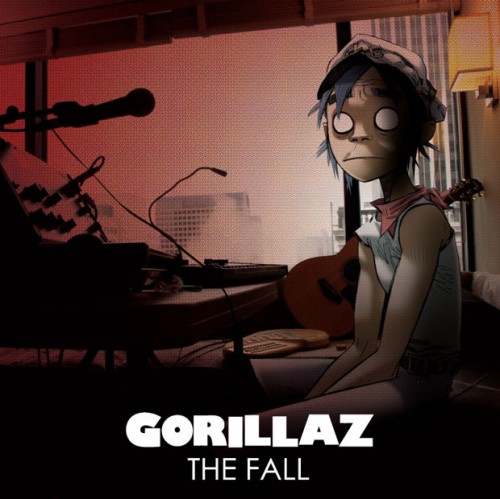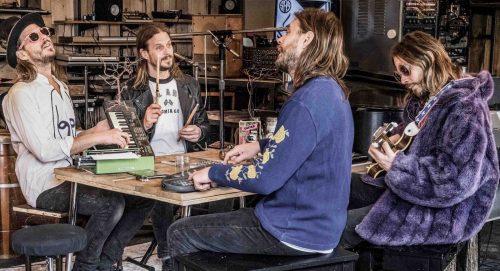By Ryan Leas
Last March, Gorillaz released their third album, “Plastic Beach.” By the end of the year, notorious workaholic and Gorillaz mastermind Damon Albarn had recorded “The Fall” on his iPad in a sustained burst of activity during the band’s 2010 fall tour of North America. As one might expect from the expediency of its inception, “The Fall” is not necessarily a proper, full-album successor to “Plastic Beach,” but it provides fans with an extra bit of music from Albarn much sooner than anyone might have expected, even by his prolific standards.
Occasionally there are moments that are just as strong as one on any other Gorillaz album, though perhaps a bit less polished. “Revolving Doors” is one of the album’s only fully fleshed-out songs and thus the obvious choice for lead single. It is also the most infectious track here. The gorgeous “Amarillo”sounds like a meditation from space rather than Texas, with Albarn laconically pleading “Put a little love into my lonely soul.” On any other album, it would come towards the end, likely setting up the final few tracks. Here, it’s one of the most grounded moments, if only because it has one of Albarn’s more fully realized vocal melodies on the album. Regardless, it would be a beautiful moment on any Gorillaz album and is one of the highlights on “The Fall.”
Though a seasonal reference alluding to the tour on which Albarn recorded the album, the title of the album would typically hold a different connotation in the world of Gorillaz, more immediately evoking some more apocalyptic implications after the dark, enveloping “Demon Days”and the premise of “Plastic Beach,” in which the members of the band were hiding on a secluded island of junk after some sort of nebulous worldwide disaster. In keeping with the mood of its predecessors, “The Fall” has the vibe of a transmission from the end of the world. Throughout, simple electronic beats support video-game synthesizers, and Albarn primarily remains in his best sadly detached mode. The apocalyptic ethos is accentuated by Albarn’s frequent sound collages, as random American radio broadcasts crackle and fluctuate amidst layered yet somehow still sparse synthesizers.
A primary distinction with “The Fall” may be that while “Demon Days” and “Plastic Beach” had a sort of conceptual and sonic plan that Albarn followed throughout, “The Fall” feels like one long piece without the same sort of distinctly constructed idea as its basis. It’s simply what Albarn claimed it was — his aural document of his tour through America, nothing more, nothing less. The entire album feels thinner and blurrier than the other Gorillaz albums, musically conveying the sight of the continent bleeding by his tour bus window. In a way, the feelings of some post-apocalyptic wasteland that the album suggests may be the primary way in which one gets the sense of an Englishman like Albarn reacting to the daunting expanse of Middle America or the American desert.
Devoid of the big pop hooks of their best singles, their typical succession of guest stars, or narrative cohesion of their past two albums, “The Fall” feels like exactly what it is — a simpler, bonus album that may serve as a transition between last year’s “Plastic Beach” and whatever Albarn does next. But that’s in no way intended to discount the high quality of “The Fall.” Given its nature as an album recorded on the road, with the country tumbling by, the album’s impressionistic qualities are a fitting aesthetic. It may not be the brilliant statement of an album like “Demon Days,” but “The Fall” is still a testament to how great a songwriter Albarn, showing that he’s still wildly entertaining and engaging even when just kicking back.
64/81




Leave a Reply